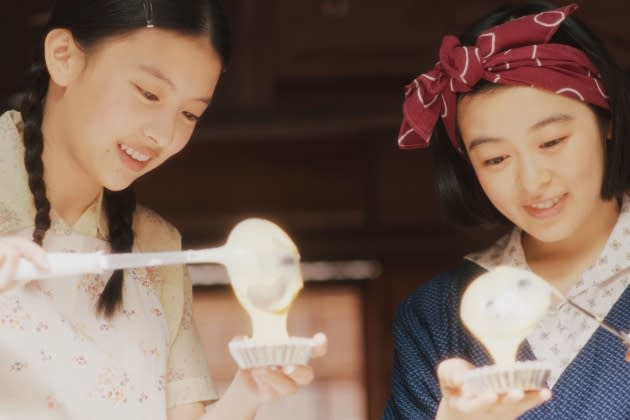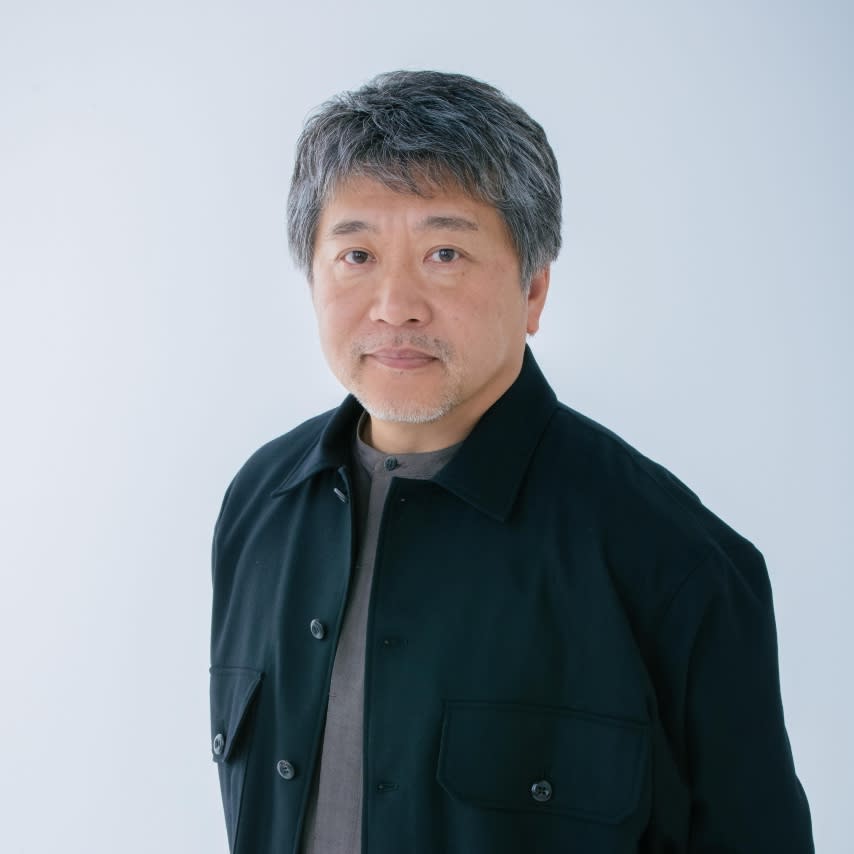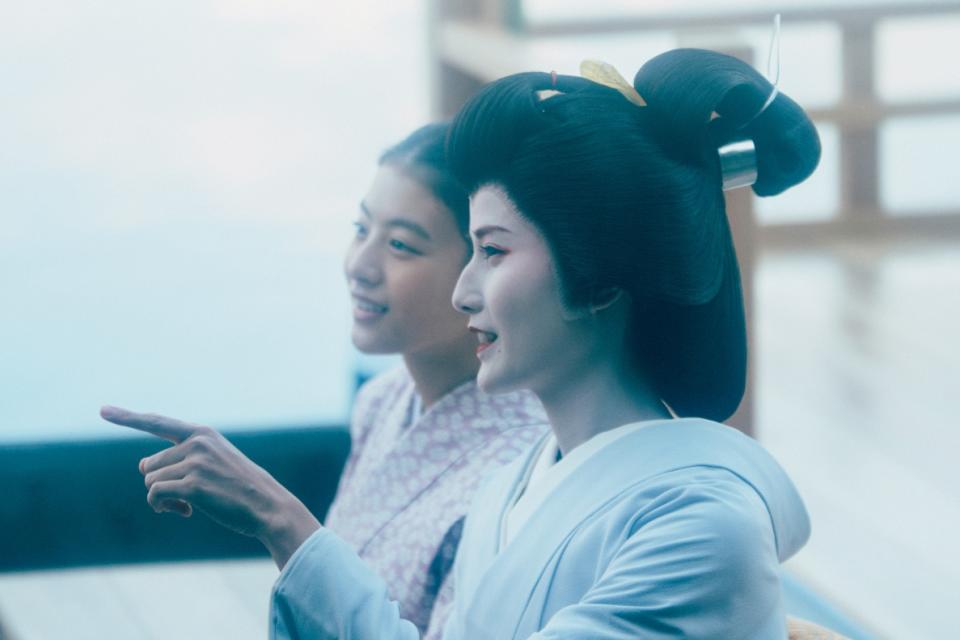Hirokazu Kore-eda On His First Netflix Series ‘The Makanai’ And Revamping Japan’s Film Industry
- Oops!Something went wrong.Please try again later.
- Oops!Something went wrong.Please try again later.

Cannes Palme d’Or-winning director Hirokazu Kore-eda’s first series for Netflix, The Makanai: Cooking For The Maiko House, is based on a best-selling manga about two young girls who move to Kyoto to start their training as ‘maiko’ or apprentice geisha.
One of them turns out to be a star maiko, but the other is not so talented in the geisha arts, which mostly comprise traditional song and dance, and ends up cooking for the household where the girls are being trained, an activity in which she excels. Neither the manga, created by Aiko Koyama, or the series are set in the Edo period, the golden era of geisha culture, but in contemporary Japan, where the profession still exists and is respected, but is also regarded as a dying art.
More from Deadline
SAG Awards Find A New Home On Netflix in 2024; This Year's Show Will Stream On YouTube
RTL Rehires Inga Leschek, Netflix's Unscripted Chief In German-Speaking Europe
Taiwanese Actor Kai Ko Suffers Serious Face Injury On The Set Of Netflix's 'Agent From Above'
Scheduled to start streaming tomorrow (January 12), the series is produced by Kore-eda and Genki Kawamura, a leading producer behind hits such as Confessions, Mirai and Your Name. Kore-eda also served as showrunner, director and writer on the nine-episode series, and brought on board three up-and-coming filmmakers – Megumi Tsuno, Hiroshi Okuyama and Takuma Sato – to co-write and direct individual episodes.
Nana Mori and Natsuki Deguchi play the two young girls and the cast also includes Aju Makita (True Mothers), veteran actress Keiko Matsuzaka and Ai Hashimoto (Confessions). Ryuto Kondo, who worked with Kore-eda on his 2018 Palme d’Or-winning Shoplifters, is the cinematographer.
Kore-eda says he was drawn to the original manga because it’s a “story centred around food”, but as he didn’t know anything about maiko culture and the Kyoto houses in which they do their intensive training, he was interested to research. In some ways, the series has a similar theme to Shoplifters in that they’re both stories about a group of people living together as a kind of family unit, but not related by blood.
“It was also an interesting setting, taking place in another world that is separated from the modern era by just a single street,” Kore-eda adds. “I thought it was a perfect setting for a story set in Kyoto, focused on food and a group of people living together under the same roof.”
Appropriately, for a story about apprenticeship, Kore-eda also used the project as an opportunity to mentor three young filmmakers. After creating the world, co-scripting with another protégé, Mami Sunada, trained through his Bun-Buku production company, and directing the first two episodes himself, he left the young filmmakers to direct the other seven episodes under his supervision. “Young directors can’t afford to just do feature films – it’s important to give them opportunities to direct,” Kore-eda says.

The three filmmakers he worked with are not exactly complete newcomers, but are still in the early days of their careers. Tsuno directed one of the segments of the Ten Years Japan anthology; Okuyama won the New Directors Award at San Sebastian film festival for his 2018 debut Jesus; while Sato has had a few films playing on the festival circuit such as Sticks And Stones (2019) and Any Crybabies Around? (2020).
Kore-eda has often spoken about the complacency in the inward-looking Japanese film industry that appears to be holding new talent back, while the South Korean industry powers ahead, not just at home, but internationally. “Japan has many young and talented directors emerging, but I get the impression we don’t have the necessary funding or producers with an international perspective to move on to the next level,” he explains.
Since Shoplifters, Kore-eda has made a film in France, The Truth, an independent project sold by Wild Bunch, and one in Korea – Broker, with CJ ENM, which won Song Kang-ho best actor at last year’s Cannes. He says this has given him useful insights into outward-looking film industries that receive substantial government support.
Last year, he called for Japan to establish a body like France’s CNC or the Korean Film Council (KOFIC), that are involved in funding as well as support programmes for emerging talent. In his conversation with Deadline, he observes that Korea has both those elements that are missing in Japan – funding and internationally-minded producers – in spades: “But while I got a lot of insights, just transplanting them to Japan won’t work. We have to figure out how to do it ourselves, but for now, we just have to keep on learning.”
Kore-eda has also been outspoken about the need to improve working conditions in the Japanese film industry, which is renowned for long hours, low pay and sexual and power harassment, and last year openly supported actors who came forward with accounts of being assaulted by male directors in Japan. But he also acknowledges that changes, both in support structures and working standards, will take a long time to achieve. “The first step is to get consensus within the film industry itself, before involving the government,” he says. “It will be a long process, but I hope we can move forward step by step.”

For audiences outside of Japan, his appetite for reform may seem at odds with the setting of his Netflix series, as it casts a mostly uncritical eye over a profession that hasn’t really been reformed for centuries, and has been hit by claims of sexual harassment against young maiko in recent years.
When asked about those issues, Kore-eda says that he previously only had indirect knowledge of the historical working conditions for geiko and maiko in the ‘Kagai’ [geisha districts] through the films of Kenji Mizoguchi and Mikio Naruse. “With such preconceived notions in mind, I visited Kyoto for the first time and learned through interviewing those involved that there are people who are working to improve the culture of Kagai and the working environment, as something to be passed on to the next generation, much like with Kabuki.”
“This series was made with the cooperation of such women,” he continues. “I did not intend to directly address the issue of harassment like Mizoguchi. However, by introducing new characters who criticize these women, I was careful not to fantasize things too much.”
He also points out that in reality there are no teenagers working as cooks in the Kagai, but that storyline is taken from the manga, which sold more than 2.7 million copies and had many younger, female readers. When asked to explain why the manga was so popular, especially among young girls, he says: “there are several reasons, but mostly young readers loved the friendship between the two girls, who support each other through everything.”
It’s certainly true that solidarity between women is a strong theme throughout the series, and while it’s not exactly a strident tale of female empowerment, it does have a message about identifying your true talents and calling in life, rather than conforming to society’s expectations. More than anything, it’s a series about food, a subject that the maiko spend much of their time discussing, and the camera reserves its most lingering gaze for carefully-lit shots of oyakodon and steamed eggplant.
Kore-eda has already returned to directing Japanese-language films with Monster, which reunites him with Shoplifters actress Sakura Ando and is also produced by Kawamura. Backed by Toho and Gaga Corp, the project is already in post-production and scheduled for release in June. But he says he’s very likely to return to series and showrunning: “It was fun working with young filmmakers, as they have skills that I don’t have. I think I’ll be asked to take on this kind of role more in the future.”
Best of Deadline
2022-23 Awards Season Calendar - Dates For The Oscars, Grammys, Guilds & More
TV Cancellations Photo Gallery: Series Ending In 2023 & Beyond
Hollywood & Media Deaths In 2023: Photo Gallery & Obituaries
Sign up for Deadline's Newsletter. For the latest news, follow us on Facebook, Twitter, and Instagram.

